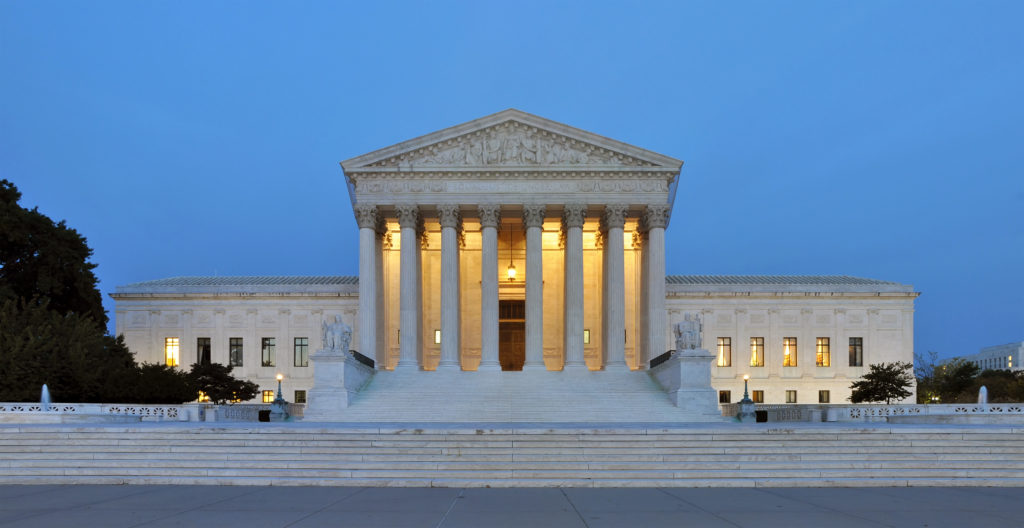Download The Free Guide
Discover practical conversation skills to get unbelievers thinking and make way for the Spirit’s work in their lives.
"*" indicates required fields

In the Netflix documentary, Reversing Roe, at around the 28:00 mark, Sarah Weddington, the attorney who argued Roe v. Wade before the Supreme Court in 1973, recounts that during the case a justice asked her when she believed a human life begins. She responded, “Your Honor, we did not try to say exactly what moment that was. There is no one answer to that. Different religions have different answers to that question. There is no legal standard that says, ‘At this point the fetus becomes a human.’ So, the question is, who gets to make that decision? Is it the woman or is it the government? And my position has always been it’s not the government.”
This is a classic case of a false dilemma (or trilemma). Why are these the only options? Weddington confuses the issue by pretending that the humanity of the unborn is either a religious issue, a decision to be made by old white men (the Supreme Court in 1973), or the woman carrying the baby.
None of these things are true. The humanity of the baby in the womb is a scientific fact from the moment of conception. Any attempt to confuse this issue is ignorance at best and malignant ideology at worst.
Consider for example these statements from widely used textbooks:
“The development of a human being begins with fertilization, a process by which two highly specialized cells, the spermatozoon from the male and the oocyte from the female, unite to give rise to a new organism, the zygote.” [Langman, Jan. Medical Embryology. 3rd edition. Baltimore: Williams and Wilkins, 1975, p. 3]
“The development of a human begins with fertilization, a process by which the spermatozoon from the male and the oocyte from the female unite to give rise to a new organism, the zygote.” [Sadler, T.W. Langman’s Medical Embryology. 7th edition. Baltimore: Williams & Wilkins 1995, p. 3]
“Almost all higher animals start their lives from a single cell, the fertilized ovum (zygote)… The time of fertilization represents the starting point in the life history, or ontogeny, of the individual.” [Carlson, Bruce M. Patten’s Foundations of Embryology. 6th edition. New York: McGraw-Hill, 1996, p. 3]
In other words, there is no question scientifically when a human life begins. To deny this is to deny science.
But there is trickery afoot in Weddington’s comments in Reversing Roe. I’m sure she knew at the time that human life begins at conception. The real question that needs answering is, “At what point does a human fetus become a person.” This may sound like an inconsequential distinction, but it is actually the crux of the matter.
Pro-Choice thinkers have succeeded in separating the issues of human life and personhood. The personhood of an individual is now what provides dignity and protection under the law. So, while it is clearly unscientific to deny that an embryo is human from the moment of conception, the way to deny the baby in the womb protection is to say it is not a person. The question, however, is who gets to say when a human becomes a person? It is either recognized at conception or it is arbitrarily granted by some authority at some point in the development of the fetus. Since there is no discernibly definitive transition in the development of the fetus after conception, any granting of personhood after conception is an emotional decision, not a scientific fact. And we should not base our ethical principles on emotion.
Mark Farnham is coauthor of the book, Talking About Ethics: A Conversational Approach (Kregel, 2021).
In history, unbelief has taken multiple forms. Many people grapple with questions about faith, spirituality, and the existence of God. In this blog, we will explore the top three reasons for unbelief, drawing insights from a compelling conversation between Pastor Jeff Durbin and an atheist at an anti-abortion rally.
POCKET GUIDE TO EVANGELISTIC & APOLOGETIC QUESTIONS DOWNLOADABLE RESOURCE The Pocket Guide to Evangelistic & Apologetic Questions by Jeff Mindler...
“An ordinary male unrestrained by religious or moral scruple, and faced with a wide variety of willing partners who demand no emotional commitment, or even to...